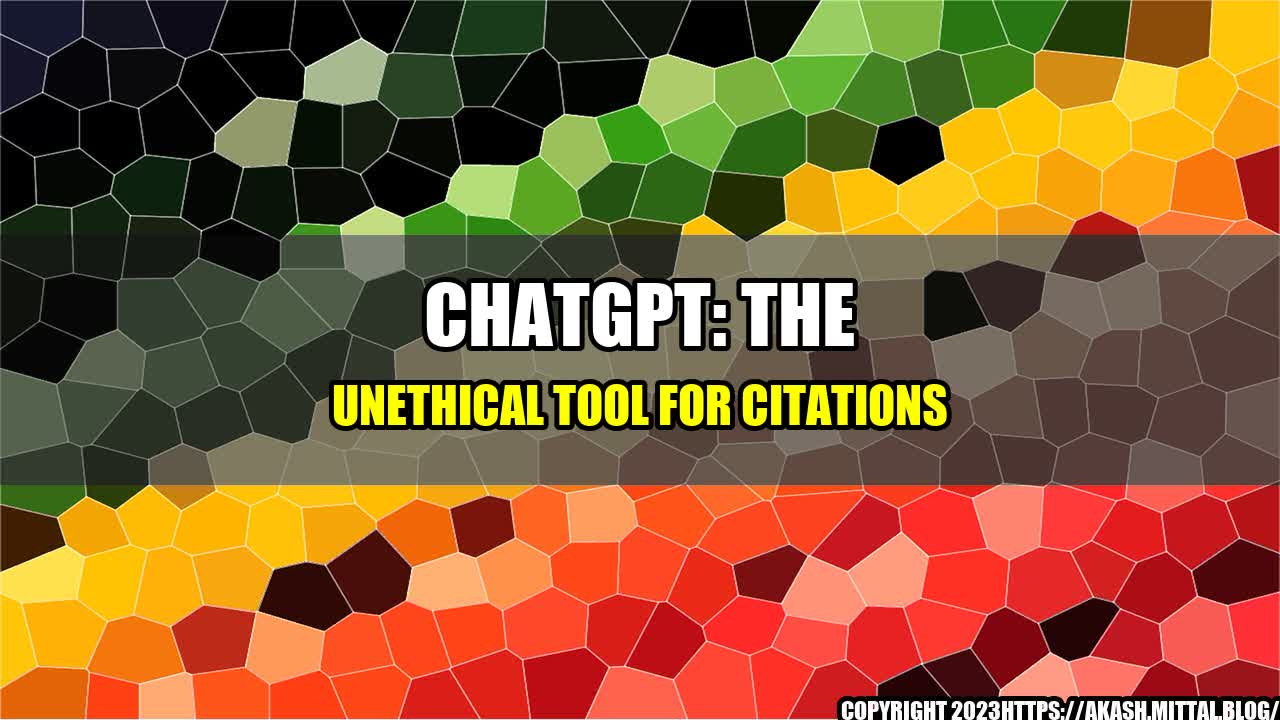
As a lawyer, it is our responsibility to present a case with utmost honesty and integrity. In doing so, it involves researching and supporting our arguments or claims through legal authorities and cited cases. However, with the help of technology, some lawyers have taken a shortcuts by utilizing unethical practices such as ChatGPT.
ChatGPT is a language model AI tool that assists in generating text. It has become a trending tool since it is readily available online and can be used for free. Recently, some lawyers have been using ChatGPT to generate bogus cases as supporting references in their legal arguments. This is worrying since bogus cases can greatly impact the outcome of the case, deceive the court, and undermine the integrity of the legal system.
An Ethical Dilemma
The use of ChatGPT violates many ethical principles in legal practice. The most prominent of these are honesty and integrity. It is important that lawyers remain truthful to the courts and their clients. Falsifying cases to support an argument is a form of deceit and undermines the integrity of legal system.
Moreover, lawyers have a duty to respect the law, maintain client confidentiality, and avoid conflicts of interests. Falsifying cases may expose a client to legal disputes or produce a conflict of interests between the lawyer and client. This action can bring irreparable damage to the legal profession and lawyers' reputation, especially in the era of social media where everything can go viral within seconds.
Quantifiable Examples
The use of ChatGPT as a tool for citation may cause serious damages, such as:
1. Bad Precedent
Citing bogus cases can set a bad precedent, leading to wrongful judgments or decisions that can negatively affect the client, public, and the legal system. This could create a domino effect, making it difficult to correct errors in the legal system.
2. Bias and Discrimination
The use of bogus cases may expose some biases and discriminatory tendencies in the legal profession. It can result in perpetuating stereotypes and limiting access to justice, particularly for marginalized groups.
3. Legal Challenges
Cases cited on ChatGPT may be challenged or questioned by the opposing side or even the court. When found to be false, it can discredit the whole legal argument, resulting in legal and reputational consequences.
The Future of Legal Citation
Lawyers must maintain high ethical standards in their practice and avoid unethical shortcuts at all costs. Researchers and legal authorities must take full responsibility to validate the credibility of their sources before citing them.
In conclusion, ChatGPT should not be used to generate bogus cases in legal arguments. Lawyers must maintain their integrity and honesty when presenting their cases to the court. The legal profession is built upon the principles of ethics, and we should all strive to uphold its integrity.
References:
- The ABA Model Rules of Professional Conduct
- ABA Formal Ethics Opinion 480 on the Use of Artificial Intelligence in the Practice of Law.
Hashtags: #legalpractice #ethics #ChatGPT #boguscases #integrity #honesty #ABA #law #citaiton
Article Category: Legal Ethics
Curated by Team Akash.Mittal.Blog
Share on Twitter Share on LinkedIn